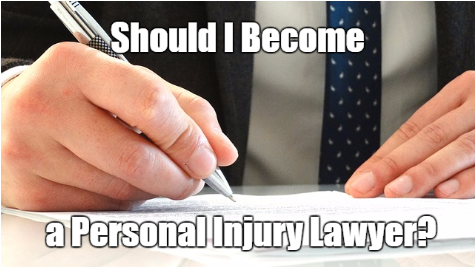In legal circles, a personal injury lawyer might also be known as a plaintiff lawyer or a trial lawyer. He or she represents individuals in the civil courts who have been injured by the carelessness and negligence of others. They also represent the families of those that have been carelessly or negligently killed by others. The objective of personal injury lawyers is to maximize the compensation that a client receives for his or her injuries. They also want to send a message to other people or entities who might cause accidents in the future to act responsibly, and remind them to and use due care and caution for the safety of others. Just some of the types of cases that a personal injury law firm represents clients in might involve:
- Auto, truck and motorcycle accidents
- Bicycle and pedestrian accidents
- Construction accidents
- Air, bus or rail accidents
- Medical malpractice
- Product liability
- Wrongful death
Some young lawyers begin practicing personal injury law straight out of law school. They probably clerked for a plaintiff firm when they were studying law and passed the bar exam. Now they’re sitting at the same desk that they sat at when they were law clerks. What distinguishes their old job from their new job is that they’re licensed to practice law now. They can sign their own pleadings and motions, and they stand in court and argue them. Others are already lawyers, and they phase into personal injury law from another area of practice. A quality personal injury practice can be very lucrative.
The lawyer who just passed the bar exam
The criminal lawyer turns personal injury lawyer
Experience
The intrinsic rewards
Aside from the financial benefits, personal injury lawyers continually meet new people and develop new relationships. They’re challenged to learn as new law develops. Their profession is also coupled with anatomy, physiology and medicine, so their constant engagement in learning isn’t only involved with the law. They meet people who are having difficult periods in the time lines of their lives, and they’ able to help them put their lives and families back together. Personal injury lawyers learn about risk versus reward very quickly because they’re subsidizing the costs of their clients’ cases with their own cash. If they lose, they don’t get paid either. One good personal injury lawyer can cause a Fortune 500 company considerable financial pain. They seek justice for injured clients and the families of those who died as a result of the carelessness and negligence of somebody else.
Many personal injury lawyers don’t solicit clients or have advertisements on the sides of buses. They don’t have to do that because other less qualified lawyers and satisfied clients refer them cases. There can be a great sense of personal and professional satisfaction in being a personal injury lawyer, and the income involved can make somebody a considerable amount of money over a career.
- Law Firm Websites, Advertising and the American Bar Association - October 14, 2019
- Can Google Be Sued for Fake Reviews? - July 29, 2019
- Will Insurers try to Misclassify Damage after Hurricane Harvey? - August 31, 2017





Thank you Chris. Outstanding insight, as always.